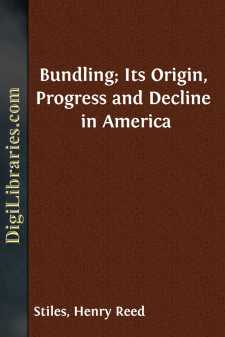Categories
- Antiques & Collectibles 13
- Architecture 36
- Art 48
- Bibles 22
- Biography & Autobiography 813
- Body, Mind & Spirit 142
- Business & Economics 28
- Children's Books 14
- Children's Fiction 11
- Computers 4
- Cooking 94
- Crafts & Hobbies 4
- Drama 346
- Education 46
- Family & Relationships 57
- Fiction 11828
- Games 19
- Gardening 17
- Health & Fitness 34
- History 1377
- House & Home 1
- Humor 147
- Juvenile Fiction 1873
- Juvenile Nonfiction 202
- Language Arts & Disciplines 88
- Law 16
- Literary Collections 686
- Literary Criticism 179
- Mathematics 13
- Medical 41
- Music 40
- Nature 179
- Non-Classifiable 1768
- Performing Arts 7
- Periodicals 1453
- Philosophy 64
- Photography 2
- Poetry 896
- Political Science 203
- Psychology 42
- Reference 154
- Religion 513
- Science 126
- Self-Help 84
- Social Science 81
- Sports & Recreation 34
- Study Aids 3
- Technology & Engineering 59
- Transportation 23
- Travel 463
- True Crime 29
Bundling; Its Origin, Progress and Decline in America
Description:
Excerpt
PREFATORY.
In the History and Genealogies of Ancient Windsor, Conn., published in 1859, speaking of the influence of the old French wars upon the religious, moral and social life of New England, I used this language:
"Then came war, and young New England brought from the long Canadian campaigns, stores of loose camp vices and recklessness, which soon flooded the land with immorality and infidelity. The church was neglected, drunkenness fearfully increased, and social life was sadly corrupted. Bundling—that ridiculous and pernicious custom which prevailed among the young to a degree which we can scarcely credit—sapped the fountain of morality and tarnished the escutcheons of thousands of families."
Hereupon there came a buzzing around my ears. Divers good sons of Connecticut winced under the soft impeachment of having a bundling ancestry, and intimated that my sketch of society in the olden times was somewhat overdrawn. In 1861, an esteemed antiquarian friend in Connecticut wrote me as follows: "Some of your friends feel that, in your History of Windsor, you showed too much inclination to malign, or at least ridicule, Connecticut institutions, though I think none of them accuse you of malice in the matter, and they fear that this subject of bundling cannot be ventilated without endangering the fair fame of old Connecticut."
Upon that hint I speak. Although born in the city of New York, I am the son of Connecticut parents, and proud to trace my descent through six generations of honest, hard-working, God-fearing Connecticut yeomanry. By the mere accident of birth I cannot feel myself absolved from that allegiance to the Wooden Nutmeg State, which is imposed upon me by the ties of ancestry, of relationship, of youthful associations, and last, not least, by the deep interest which I have taken in the history of one of its eldest-born towns. I am, indeed, at this day, to all intents and purposes, as wholly and truly a Connecticut man as if born within her borders; and as proud of her past, as hopeful of her future, and as jealous of her reputation as any one could desire. I trust, therefore, that I may be allowed to disclaim any "inclination to malign, or at least ridicule Connecticut institutions," a task which, in my case, would savor of ingratitude, and which I should consider unworthy of my humble pen.
I cannot but think, also, that those who have found, or think that they have found, an inimical design in any pleasantries in which I may have indulged while describing the customs and manners of by-gone days—have betrayed a thin-skinnedness, and an ignorance of the true glory of Connecticut history, when they imagine that her fair fame can be seriously tarnished by the fly-specks of certain customs—at no time without their vigorous opponents—and long since rendered obsolete by the march of improvement.
The fun of the thing, however, is, that the sentence which has thus called forth the animadversions of the critics, will be found, with its context, on closer examination, to have applied to the New England Colonies, and not to Connecticut alone! In their haste to vindicate the land of steady habits, they seem to have assumed more than their share of the reproach involved in my simple historical statement.
As for myself, I am no believer in the theory that the objectionable portions of history should be kept in the background, and that only the bright side should be turned towards the world. If, as one has happily said, "history is experience teaching by example," we most surely need to have both sides fairly presented to us before we can properly extract therefrom the lesson of good or of evil which is therein taught....


